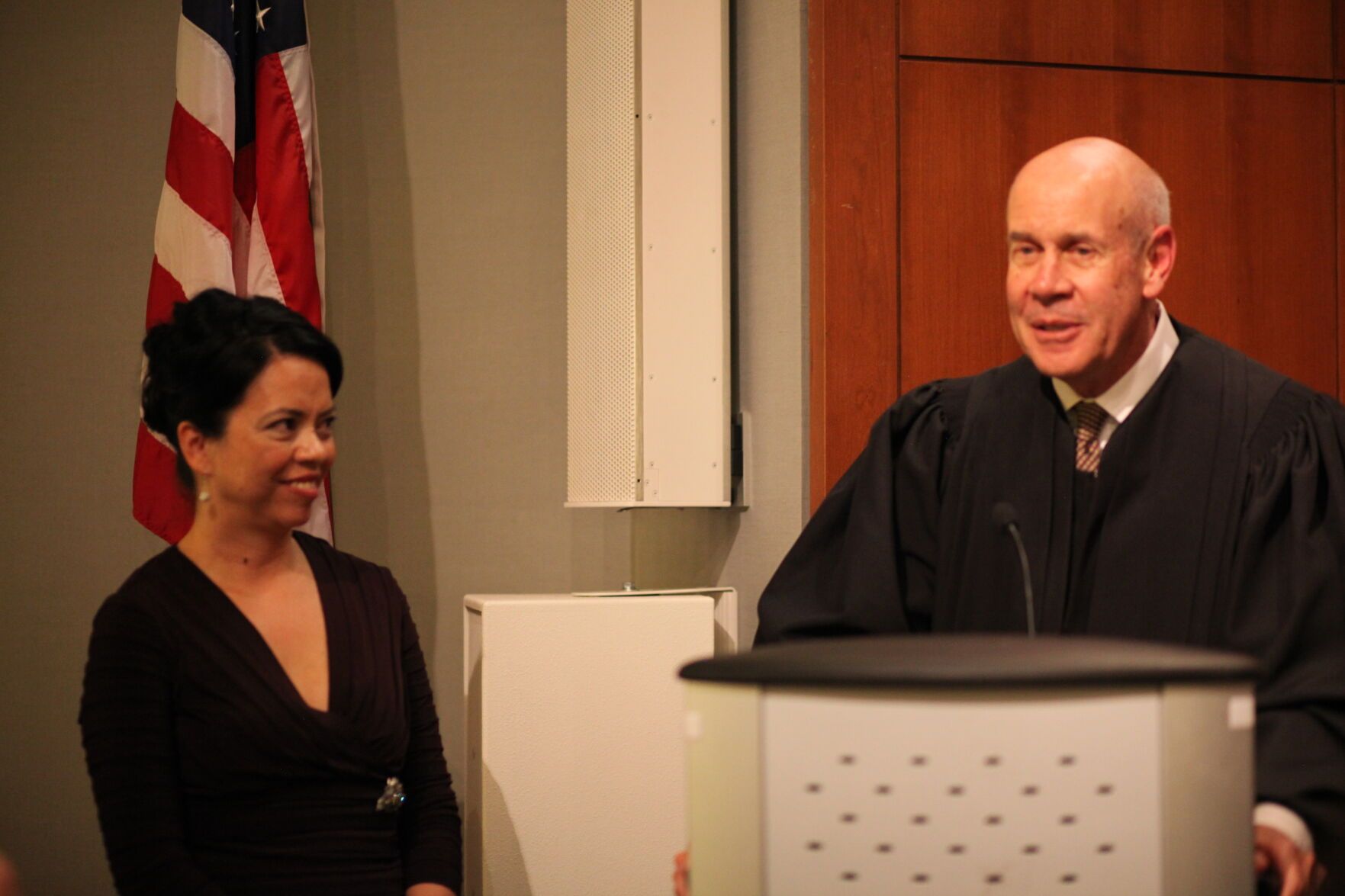Federal judge awards $10K to ‘supermax’ prisoner for guard’s unwarranted force

A federal judge took the rare step last week of concluding an incarcerated, self-represented plaintiff should be compensated $10,000 by the U.S. government for a prison guard’s unwarranted use of force.
After a five-day bench trial in which Khalfan Khamis Mohamed represented himself against the government’s attorneys, U.S. District Court Senior Judge R. Brooke Jackson determined Mohamed had successfully proven one of his battery claims and had suffered psychological damage from the encounter.
Being slammed into a wall “has had a profound and lasting negative impact on him. In 18 years prior to the incident in (prison) custody, Mr. Mohamed had no suicide risk assessments; since this incident, he has had 12,” wrote Jackson in an Oct. 24 order.
Former U.S. Magistrate Judge Michael E. Hegarty, who gave annual statistical presentations about Colorado’s federal trial court before retiring in January, told Colorado Politics he could not recall a self-represented, incarcerated plaintiff ever prevailing at trial in the past decade.
Mohamed brought three claims of battery under the Federal Tort Claims Act, which permits injured parties to recover damages from the United States itself. Jackson’s order narrated the evidence from trial, starting with Mohamed’s conviction for the deadly 1998 bombing of the U.S. embassy in Tanzania.
Two decades ago, he transferred into the U.S. Penitentiary — Administrative Maximum Facility in Florence, also known as “ADX” or “supermax.”
“None of the corrections officers who testified could recall any prior incident where Mr. Mohamed was violent, disruptive, or disrespectful, nor could they recall hearing about him behaving in such a way,” Jackson wrote.

Mohamed dedicated significant time to writing journals and manuscripts. He also engaged in hunger strikes to advocate for better prison conditions.
In August 2018, Mohamed started another hunger strike after prison officials removed books from his cell. When sufficient time had passed, ADX officially recognized his strike, and guards decided to search his cell. David Brush and Joseph Miller then escorted Mohamed to the law library without incident.
After the search, Mohamed asked to see a lieutenant. Although there was differing testimony about what unfolded, the witnesses confirmed that the common practice is for such meetings to take place in a person’s cell.
Once the three men reached Mohamed’s cell, Mohamed turned toward his left, away from the cell door and from Brush. Surveillance video, without sound, showed Brush slamming Mohamed against the wall. Although Brush testified he was reacting to the possibility that Mohamed turned away to thwart the escort, Jackson saw things differently.
Mohamed “was alone in the middle of a hallway with two officers who collectively outweighed him by over 400 pounds,” he wrote. “Such an obviously futile gesture of active, physical resistance in the middle of a hunger strike is not consistent with Mr. Mohamed’s long record of behavior at the ADX.”
Instead, Jackson found it likely that Mohamed was obeying a command to face the wall, and he simply chose the wall opposite Brush.

Other employees came to assist Brush and Miller, and the escort resumed down the hall. At one point, Mohamed seemed to fall first, with two other employees falling with him. Mohamed fractured his ankle in the process.
“Ultimately, the Court is forced to rely largely on the video, although it is exceptionally poor quality,” wrote Jackson, adding that he found no evidence that the employees deliberately injured Mohamed amid the fall.
Mohamed also alleged the employees beat him for 15 minutes and made offensive comments in an observation cell that was not under video surveillance. Jackson ultimately found no evidence to support those claims, as video from afterward showed Mohamed appearing relatively unharmed given the brutal assault he had alleged.
Subsequently, Mohamad learned the guards had confiscated his written works. The government disputed whether Mohamad’s property was thrown out, but Jackson believed the circumstantial evidence suggested it was never returned. He also noted there was a “potentially retaliatory motive” for confiscating the papers — to dissuade Mohamad from reporting his abuse.
Jackson concluded Mohamad had proven his battery claim related to Brush’s initial wall slam.
“This Court finds that Officer Brush not only intended to move Mr. Mohamed against the wall but also that he intended this contact to be harmful and offensive to Mr. Mohamed,” he wrote.
Although Jackson believed Mohamad suffered relatively little long-term physical damage, he determined Mohamad’s depression and post-traumatic stress disorder stemmed, at least in part, from the wall slam.
He awarded Mohamed $10,000.
The case is Mohamed v. United States.












